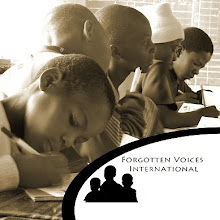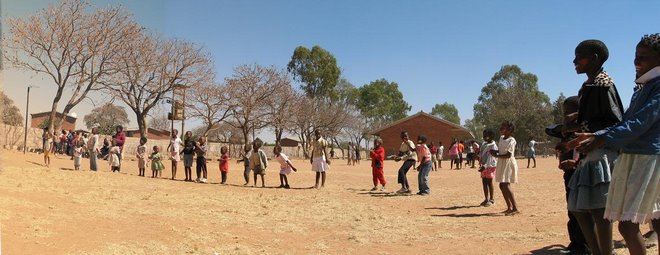I'll write more on John's talk this week, but in the meantime...I thought you'd find this article interesting and worth the read. It highlights how people are traveling far to get these expensive drugs, even as Mozambique struggles to provide enough for its own citizens.
An estimated 6% of Zimbabweans that need ARVs have access currently. Be challenged. Learn.
-Ryan
-
Zimbabweans get antiretrovirals in Mozambique
Posted by: "Barbara Goss" mukunyadza@gmail.com
Sat Mar 1, 2008 11:28 pm (PST)
Mail and Guardian
Zimbabweans get antiretrovirals in Mozambique
Florence Panoussian | Machipanda, Mozambique
02 March 2008 08:51
Zimbabwean orphans Evans (13) and Edmond Mahlangu (8) crossed a
mountain range on foot to get to Mozambique where they are slowly recovering
on life-saving Aids drugs in short supply back home.
"We walked for a day in the mountains. We had to keep quiet
because of the guards," recounted the boys' 17-year-old sister, Emmaculate,
who made the 10km journey with her HIV-positive siblings at the beginning of
February.
"It was tough above all for my brothers. They had to walk alone
because I was carrying bags."
The children have taken refuge with an aunt not far from the
Machipanda border post in the central Mozambican province of Manica.
Orphaned in 2006, the children lived with their grandmother in
Mutare on the Zimbabwean side of the border until she banished them in
January.
"My grandmother chased us away. She was afraid of the boys
because they are sick. She was scared to touch them, even to cook for them,"
said Emmaculate.
Without any identity documents, the children fled to Mozambique
as little hope remained in their home country with a critical lack of food
and drugs and official inflation exceeding 100 000% -- a state of affairs
widely blamed on longtime President Robert Mugabe whose controversial land
reform policies, seizing white-owned farms for redistribution to landless
black Zimbabweans, all but killed commercial agriculture and scared off
foreign investors.
Evans and Edmond were put on antiretroviral (ARV) treatment as
soon as they arrived in Mozambique.
"I feel better now. It's not so bad as before," the elder boy
said timidly, his body covered in a severe rash.
The boys had been given ARVs once before, back home in Zimbabwe,
but government-sponsored drugs are hard to come by and private sector prices
are prohibitive.
'We accommodate all patients without discriminating'
Mozambican officials say Zimbabweans flock across the border to
access ARVs.
"Hundreds of Zimbabweans come here to get Aids treatment that
Mozambique provides for free," said Aarao Uaquiço, local coordinator of the
national council against Aids, a government body.
The Zimbabwean beneficiaries' numbers are not well documented.
"We accommodate all patients without discriminating," said
provincial head doctor Marilia Pugas.
More than 100 000 HIV-positive people now receive free ARV
treatment
in Mozambique, up from 7 000 in 2005.
"It is extraordinary. But the costs are enormous," said Maurico
Cysne, Mozambican representative of the United Nations Programme on Aids
(UNAids).
"Treatment costs $50 [per person] a year."
One of the poorest countries in the world, Mozambique like most
of Southern Africa is buckling under the impact of HIV/Aids.
It has an average HIV prevalence rate of 16% of the population,
rising to 23% in some areas of Manica, a transit point for heavy trucks
making their way from Zimbabwe, Zambia and Malawi to the





No comments:
Post a Comment